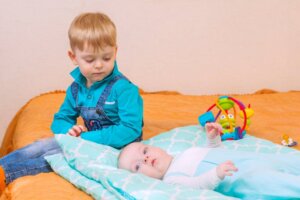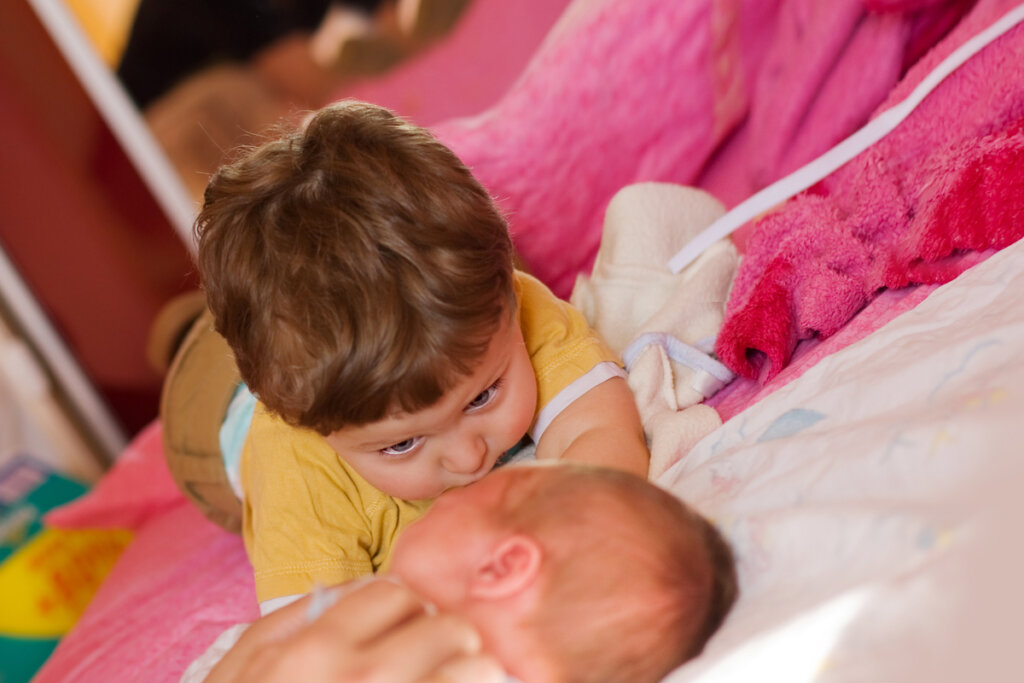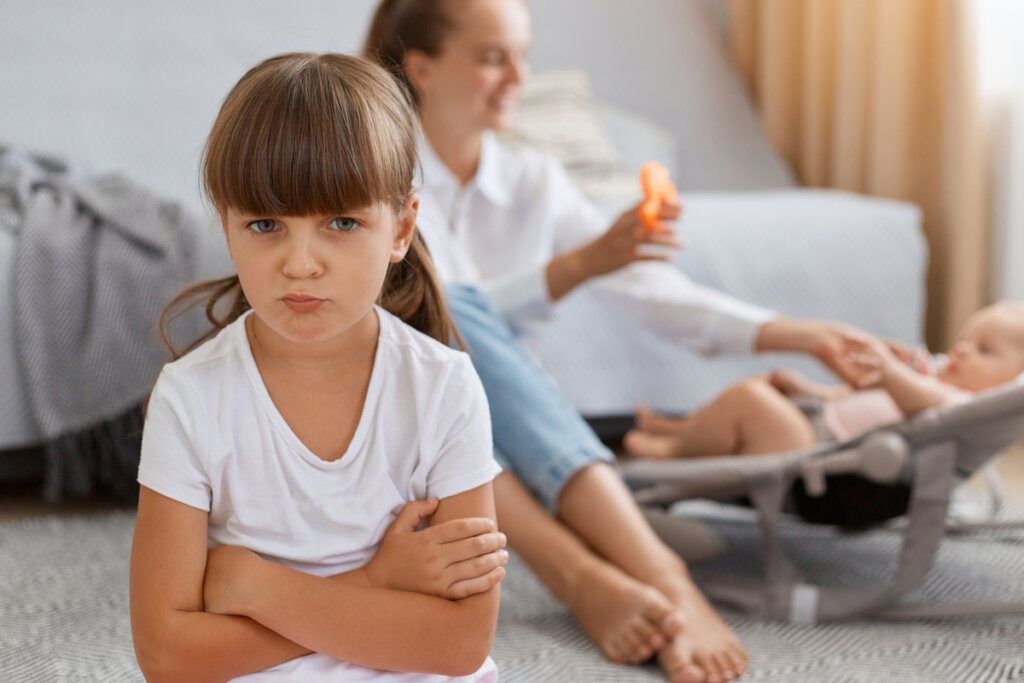Displaced Child Syndrome

Displaced child syndrome refers to a difficulty that affects older siblings. It’s usually connected to the arrival of a younger sibling. It also affects, although not as pronouncedly, the penultimate child.
Nowadays, there aren’t many families with more than two children, and the number of those that decide to have only one is growing. Even so, there are still many nuclear families with older brothers and sisters. These are the most susceptible to experiencing displaced child syndrome.
Second or third children are safe from displaced child syndrome for a clear reason: they’ve had siblings ever since they were born. They don’t even know what it means to be the only one in the minds and hearts of their parents. Let’s take a look at the displaced child syndrome.
“A child is shaped at the very start of life by the values of certain adults.”
-Robert Coles-

When the ‘intruder’ arrives
Displaced child syndrome encompasses a set of prototypical behaviors and reactions in the eldest child when a sibling arrives. The essence of this psychological picture is that they see the new child as an intruder and not as someone with whom they have a filial bond.
All older siblings, and sometimes others, experience it, but not always with the same intensity. In fact, it’s usually transitory. However, there are cases in which it becomes permanent. In any case, it is something that affects the well-being of the child and can even cause health problems.
The most characteristic feature of displaced child syndrome is the older sibling’s desire to attract the attention of their parents. Furthermore, they have the desire to attack or eliminate the ‘intruder’ even if they appear to love their new brother or sister and demonstrate that they want to take care of them. If parents don’t know how to handle this situation, it can cause great harm to the affected child.
Symptoms of displaced child syndrome
A child affected by displaced child syndrome, especially if they’re extremely young, doesn’t know what’s happening to them. They don’t even understand that they’re rejecting their brother or sister. They simply see how everyone focuses on the new baby and is paying more attention to them.
As a rule, they display changes in their behavior, expressed in one or more of the following manifestations:
- Greater aggressiveness.
- Extreme passivity.
- Poor school performance.
- Introversion.
- Inattention.
- Not wanting to play.
- Changes in appetite.
- Sleep disturbances.
- Frequent temper tantrums.
- Reverting to behavior like thumb sucking, talking like younger children, etc.
Physical symptoms or even health problems may also occur. Sometimes, there are digestive problems, infections, or headaches. They may also develop allergies such as dermatitis or asthma. In some cases, they present fever and even seizures.

What can be done?
Displaced child syndrome can extend into adult life if it isn’t managed properly. It may give rise to adults with deep feelings of abandonment and the perception that they ‘have no place in the world’. There’s also a tendency to feel jealousy and a state of apparently inexplicable mourning.
It’s best to start working with the child before the baby is born. They have to be taught to share a space that used to be theirs alone. Therefore, it’s really important to involve them in the preparations for the birth. For example, parents should ask their opinion about where the new baby will sleep. They can also help buy the new baby’s clothes and everything they’ll need.
In addition, it’s extremely important that they understand that their mother has to go to the hospital to have the baby. At such an early age, it isn’t easy for children to understand such long absences. Even less so if the mother returns home with a competitor in her arms.
Therefore, it’s essential to ensure that these children continue to occupy an important place in the life of their parents. Their parents must share with them the arrival of the baby as a family event and not as a drastic change to the care and affection shown to the child. However, if there are difficulties, it’s advisable to visit a therapist for guidance.
All cited sources were thoroughly reviewed by our team to ensure their quality, reliability, currency, and validity. The bibliography of this article was considered reliable and of academic or scientific accuracy.
Cañizares, A. R., Robles, R. D., & Garnés, M. C. G. (2015). Los celos ante la llegada de un nuevo hermano. Riesgos. In Congreso Internacional Infancia en Contextos de Riesgo (pp. 2286-2289).
This text is provided for informational purposes only and does not replace consultation with a professional. If in doubt, consult your specialist.








